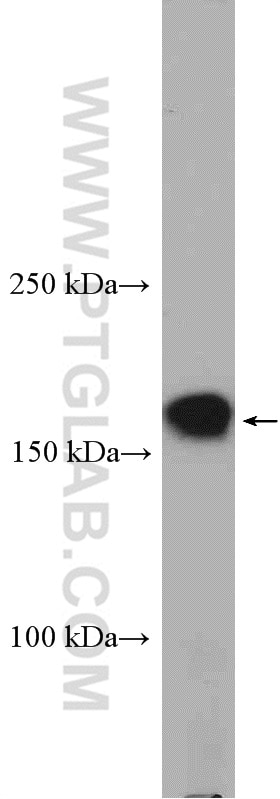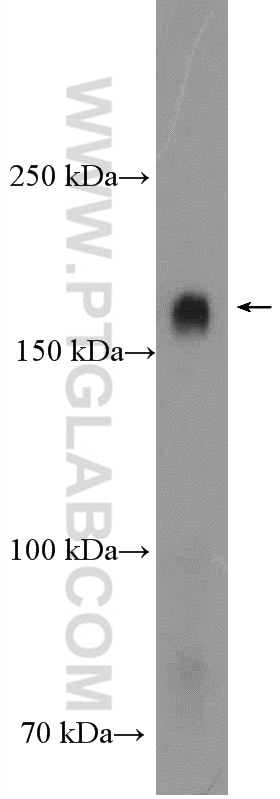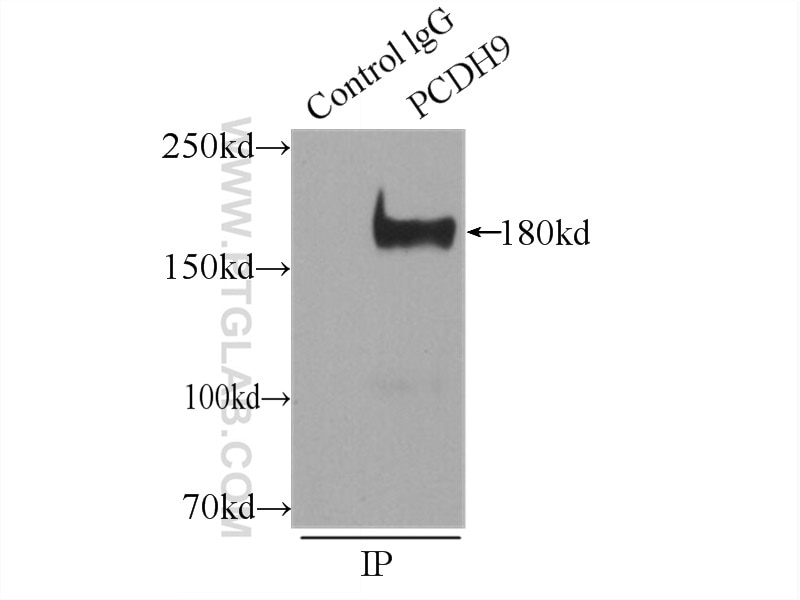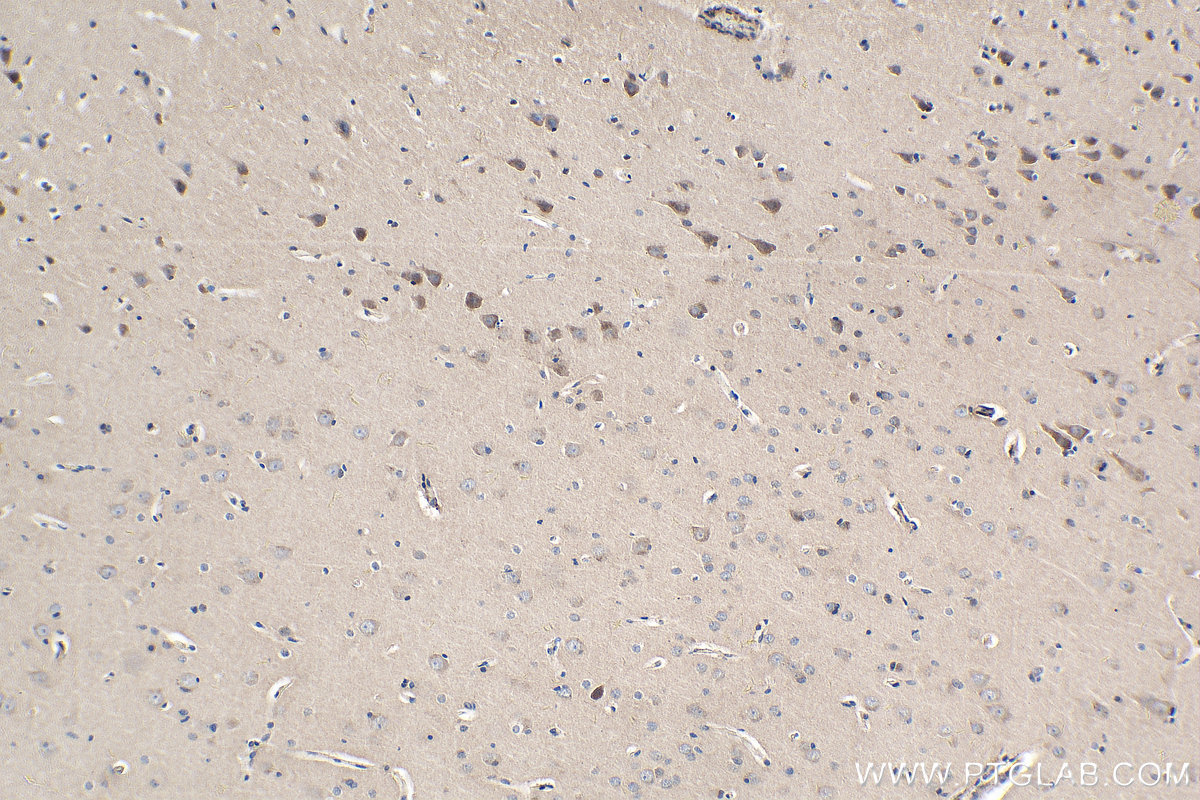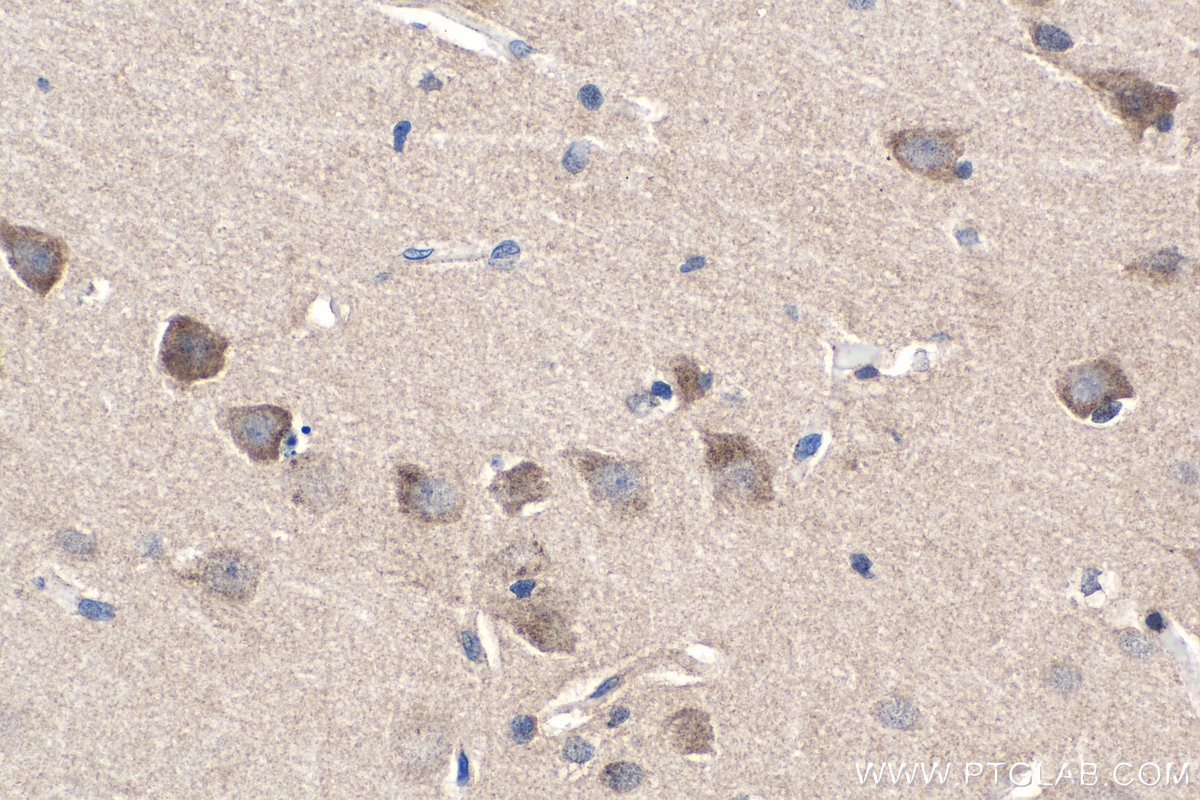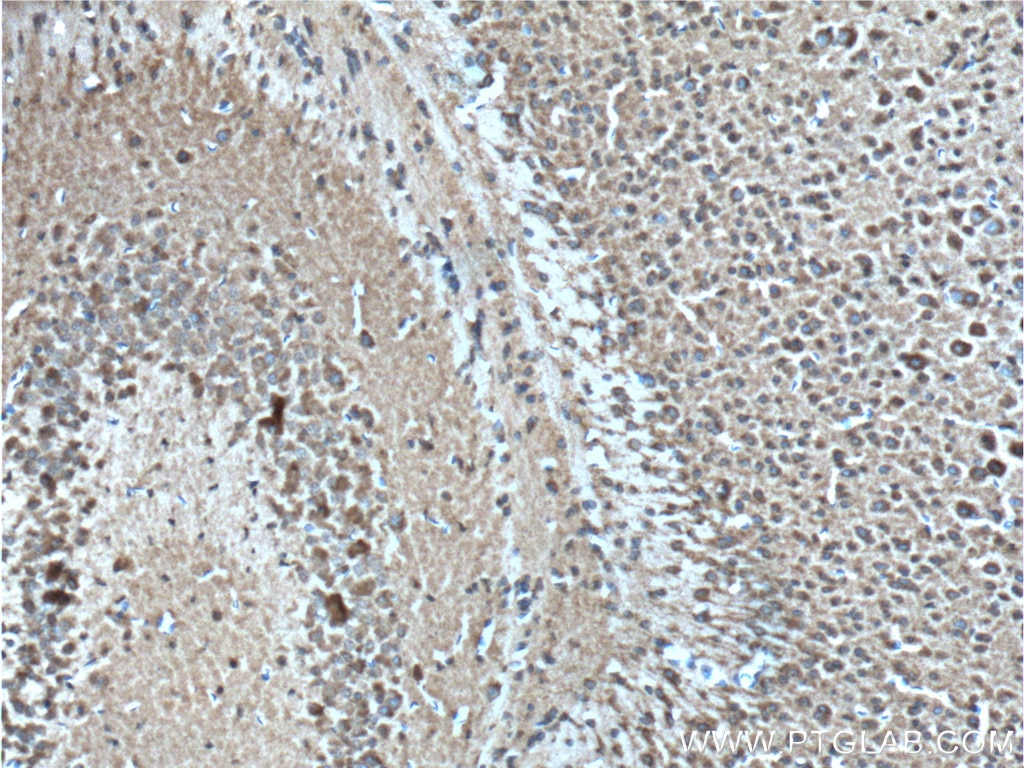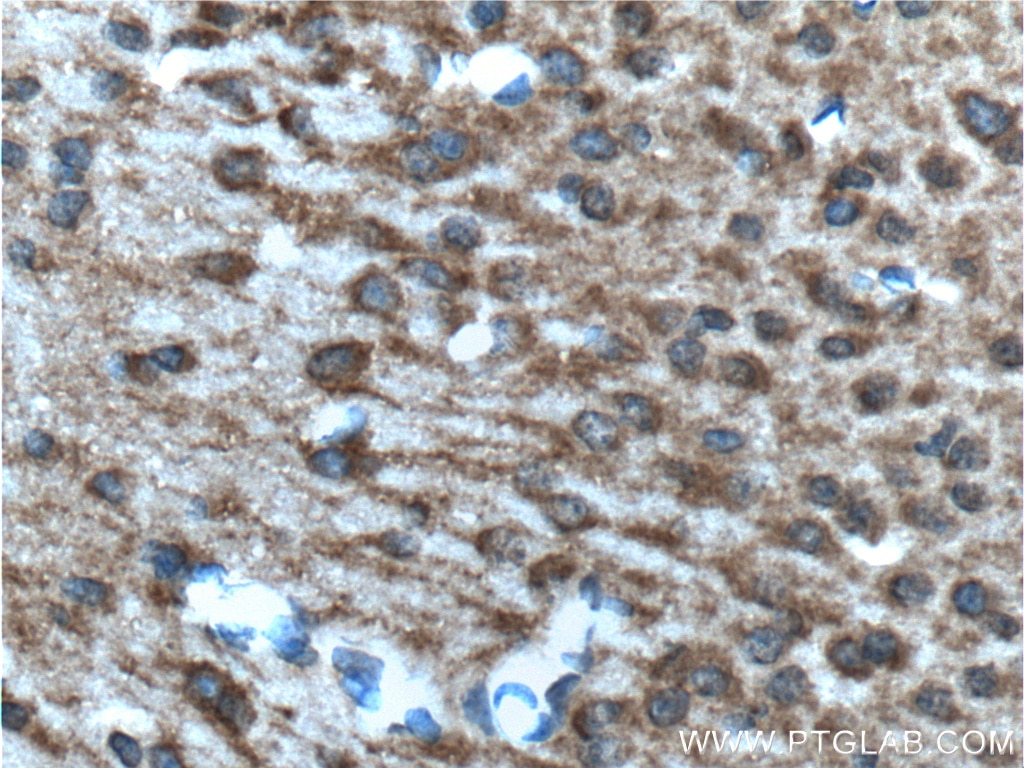Anticorps Polyclonal de lapin anti-PCDH9
PCDH9 Polyclonal Antibody for WB, IP, IHC, ELISA
Hôte / Isotype
Lapin / IgG
Réactivité testée
Humain, rat, souris
Applications
WB, IP, IF, IHC, ELISA
Conjugaison
Non conjugué
N° de cat : 25090-1-AP
Synonymes
Galerie de données de validation
Applications testées
| Résultats positifs en WB | tissu cérébral de souris, tissu cérébral de rat |
| Résultats positifs en IP | tissu cérébral de souris |
| Résultats positifs en IHC | tissu de gliome humain, tissu cérébral de souris il est suggéré de démasquer l'antigène avec un tampon de TE buffer pH 9.0; (*) À défaut, 'le démasquage de l'antigène peut être 'effectué avec un tampon citrate pH 6,0. |
Dilution recommandée
| Application | Dilution |
|---|---|
| Western Blot (WB) | WB : 1:500-1:1000 |
| Immunoprécipitation (IP) | IP : 0.5-4.0 ug for 1.0-3.0 mg of total protein lysate |
| Immunohistochimie (IHC) | IHC : 1:250-1:1000 |
| It is recommended that this reagent should be titrated in each testing system to obtain optimal results. | |
| Sample-dependent, check data in validation data gallery | |
Applications publiées
| WB | See 2 publications below |
| IF | See 1 publications below |
Informations sur le produit
25090-1-AP cible PCDH9 dans les applications de WB, IP, IF, IHC, ELISA et montre une réactivité avec des échantillons Humain, rat, souris
| Réactivité | Humain, rat, souris |
| Réactivité citée | Humain, souris |
| Hôte / Isotype | Lapin / IgG |
| Clonalité | Polyclonal |
| Type | Anticorps |
| Immunogène | PCDH9 Protéine recombinante Ag18696 |
| Nom complet | protocadherin 9 |
| Masse moléculaire calculée | 1237 aa, 136 kDa |
| Poids moléculaire observé | 150-180 kDa |
| Numéro d’acquisition GenBank | BC136626 |
| Symbole du gène | PCDH9 |
| Identification du gène (NCBI) | 5101 |
| Conjugaison | Non conjugué |
| Forme | Liquide |
| Méthode de purification | Purification par affinité contre l'antigène |
| Tampon de stockage | PBS avec azoture de sodium à 0,02 % et glycérol à 50 % pH 7,3 |
| Conditions de stockage | Stocker à -20°C. Stable pendant un an après l'expédition. L'aliquotage n'est pas nécessaire pour le stockage à -20oC Les 20ul contiennent 0,1% de BSA. |
Informations générales
Protocadherin-9 (PCDH9) is a member of the protocadherin family that belongs to the cadherin superfamily. Protocadherins are calcium-dependent adhesion proteins and have been implicated in neural cell-cell interactions. They are abundantly expressed in the central nervous system during embryonic development and in adulthood (PMID: 24214103). PCDH9 is a single-pass type I membrane protein that contains seven cadherin motifs in its extracellular domain. It might be involved in the formation of specific neural circuits during neural development (PMID: 22982106).
What is the molecular weight of PCDH9?
The calculated molecular weight of PCDH9 is 136 kDa.
What are the isoforms of PCDH9?
Alternatively spliced transcript variants encoding distinct isoforms have been identified for the PCDH9 gene; a short transcript, a standard transcript, a transcript with additional exon 2, and another transcript with variant exon 3 (PMID: 15095963).
What is PCDH9's involvement in neural development?
The family of protocadherins is essential for neural development as mutations in these proteins give rise to neurodevelopmental disorders such as schizophrenia and epilepsy. However, the exact mechanisms of loss of function and the role of PCDH9 remain to be fully characterized (PMID: 22982106).
Protocole
| Product Specific Protocols | |
|---|---|
| WB protocol for PCDH9 antibody 25090-1-AP | Download protocol |
| IHC protocol for PCDH9 antibody 25090-1-AP | Download protocol |
| IP protocol for PCDH9 antibody 25090-1-AP | Download protocol |
| Standard Protocols | |
|---|---|
| Click here to view our Standard Protocols |
Publications
| Species | Application | Title |
|---|---|---|
Neuron Longitudinal single-cell transcriptional dynamics throughout neurodegeneration in SCA1 | ||
Onco Targets Ther MiR-200a-3p promoted the malignant behaviors of ovarian cancer cells through regulating PCDH9. | ||
Genes (Basel) Expression of Congenital Anomalies of the Kidney and Urinary Tract (CAKUT) Candidate Genes EDA2R, PCDH9, and TRAF7 in Normal Human Kidney Development and CAKUT |
